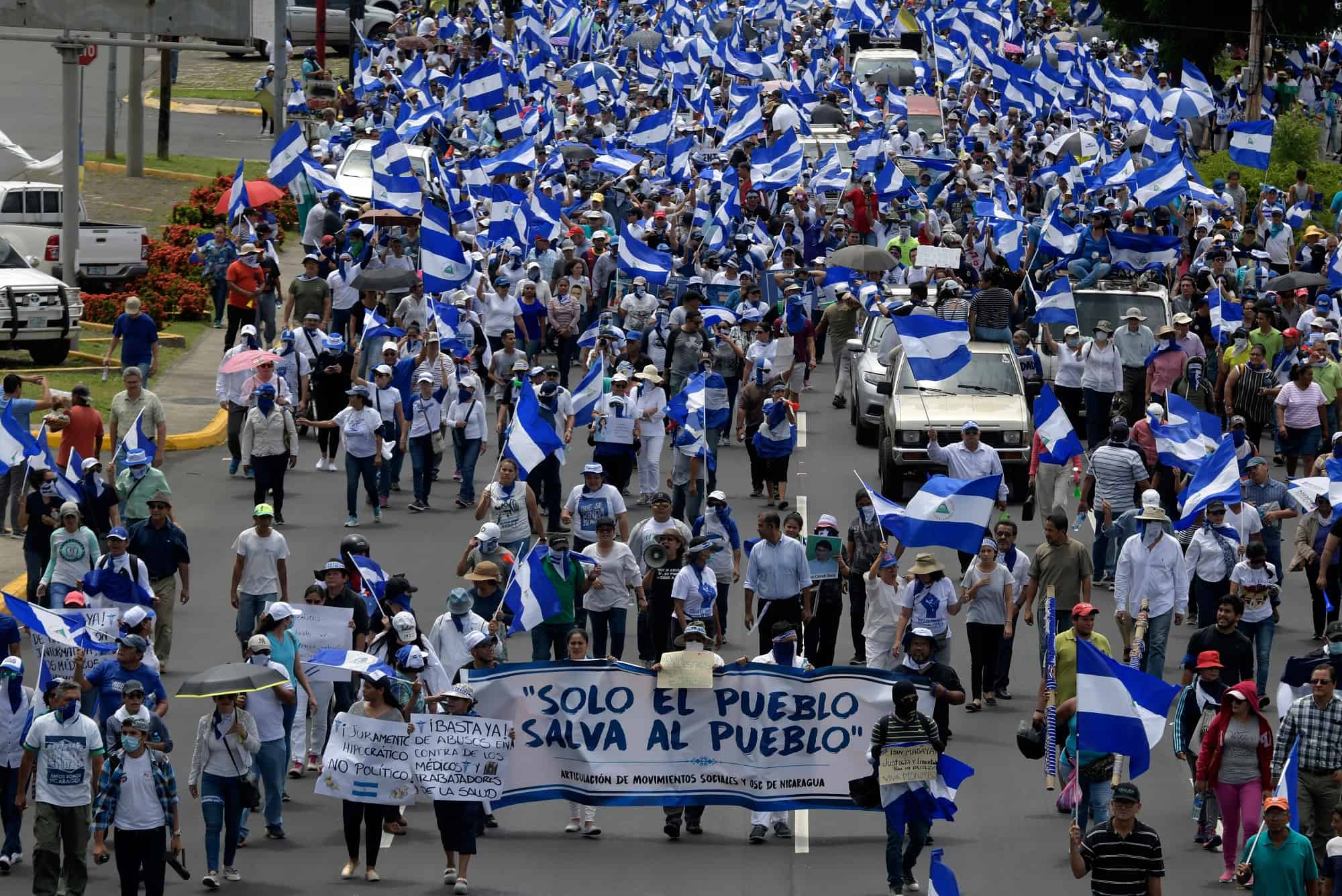Nicaraguan journalist Carlos Fernando Chamorro, who has covered corruption for more than a decade, faces the wrath of the government whose police raided and occupied the offices of Confidencial, his publication, in an attempt to silence him. Chamorro denounced on Wednesday the police chief, Francisco Díaz, for “robbery, usurpation of domain and organized crime,” after they searched and confiscated Confidencial’s assets and other media outlets critical of the government.
With a direct and confrontational style, Chamorro, 62, does not shy on describing president Daniel Ortega as a “bloodthirsty dictator” and accuses him of holding on to power through terror. The journalist, whose professional accomplishments are respected among journalistic and intellectual circles, has been mentioned as a potential presidential candidate, although he does not see himself in that role — but he does not explicitly deny the possibility.
“When questioning power, when confronted with power, I have been attacked by power, but I am not associated with an opposition political movement,” he said. The image of riot police pushing, shouting and insulting Chamorro and other journalists covering his presence at the police headquarters provoked condemnation of the government from Nicaraguans and throughout the international community.
The sister of the journalist, Cristiana Chamorro, denounced via social media “a video of [Vice President Rosario] Murillo calling our family ‘traitors and antipatriots,’ which is a direct threat against the security and life of [Carlos Fernando Chamorro]. Anything that happens to him or his family is Murillo’s responsibility, let’s not allow another crime like January 10, 1978.”
That day, Pedro Joaquín Chamorro — Carlos’s father, who through his newspaper La Prensa opposed the dictatorship of Anastasio Somoza — was killed by the regime, causing enormous social discontent.
Pedro’s death led Carlos to change his plans of studying economics and instead focus on political change. “I got into journalism and got into the Sandinista Front,” Carlos said. His mother, Violeta Barrios de Chamorro, was elected president (1990-1997) and became the first woman to hold that position in Nicaragua.
Carlos Fernando Chamorro is the youngest of the four children, all who have ties to journalism. “I feel very proud of the heritage and especially of my father’s example as a person who was consistent with his values,” he said. “I am also proud of my mother, who is sick and now retired from politics.
“I never met Daniel Ortega prior to the triumph of the revolution; I never saw him face to face,” said Chamorro, recalling his relationship with the current president.
Journalism: A check and balance
“I wanted to establish my credentials by my own merit,” Chamorro said. “That is, I don’t want to practice journalism in the shadow of my father or my mother.” He successfully created the digital newspaper Confidencial, and the investigative television programs Esta Semana and Esta Noche which, despite the occupation of their facilities, continue to be broadcast.
The raid and occupation of Chamorro’s publications is part of the government’s actions against nine civic and human-rights organizations that the parliament accused of being coup plotters and terrorists, revoking their legal status. Chamorro accused Ortega’s director of police, Francisco Díaz, of crimes of theft, usurpation of domain and organized crime.
“The path I have chosen is the path of independent journalism,” Chamorro said. “I believe that this is significant in a country where institutions have collapsed. It is significant that there are small, independent media that have strengthened their trajectory and their credibility based on values and principles, to investigate corruption.
“I think the independent press is a check and balance, and it should continue to play that role. “I do not consider myself the best journalist in Nicaragua, in Latin America, but I think I know how to do this job well. We have planted seeds of credibility and confidence over all these years, and now we are reaping it.”






